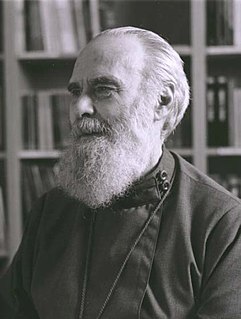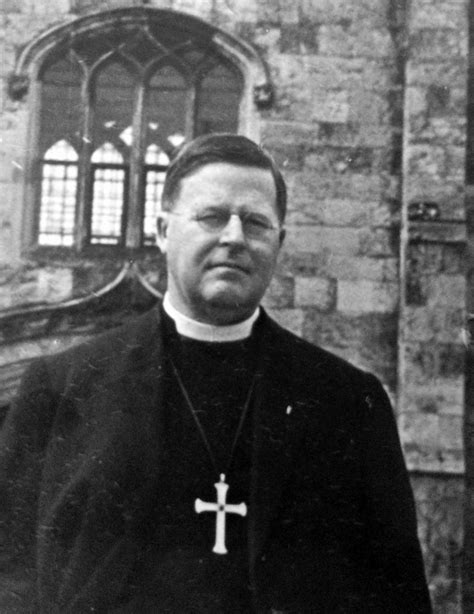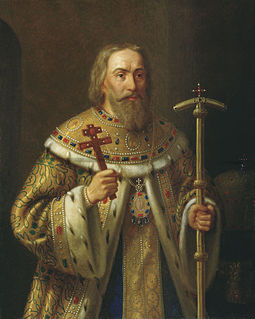A Quote by Thomas Aquinas
The custom of the Church has very great authority and ought to be jealously observed in all things.
Related Quotes
As to those other things which we hold on the authority, not of Scripture, but of tradition, and which are observed throughout the whole world, it may be understood that they are held as approved and instituted either by the apostles themselves, or by plenary Councils, whose authority in the Church is most useful, e.g. the annual commemoration, by special solemnities, of the Lord's passion, resurrection, and ascension, and of the descent of the Holy Spirit from heaven, and whatever else is in like manner observed by the whole Church wherever it has been established.
Even as he would be guilty of falsehood who would, in the name of another person, proffer things that are not committed to him, so too does a man incur the guilt of falsehood who, on the part of the Church, gives worship to God contrary to the manner established by the Church or divine authority, and according to ecclesiastical custom.
Bowing down in blind credulity, as is my custom, before mere authority and the tradition of the elders, superstitiously swallowing a story I could not test at the time by experiment or private judgment, I am firmly of the opinion that I was born on the 29th of May, 1874, on Campden Hill, Kensington; and baptised according to the formularies of the Church of England in the little church of St. George opposite the large Waterworks Tower that dominated that ridge.
The hypotheses which we accept ought to explain phenomena which we have observed. But they ought to do more than this; our hypotheses ought to foretell phenomena which have not yet been observed; ... because if the rule prevails, it includes all cases; and will determine them all, if we can only calculate its real consequences. Hence it will predict the results of new combinations, as well as explain the appearances which have occurred in old ones. And that it does this with certainty and correctness, is one mode in which the hypothesis is to be verified as right and useful.
It seems to me, and I am personally convinced, that the Church must never speak from a position of strength. [These are shocking words.] It ought not to be one of the forces influencing this or that state. The Church ought to be, if you will, just as powerless as God himself, which does not coerce but which calls and unveils the beauty and the truth of things without imposing them. As soon as the Church begins to exercise power, it loses its most profound characteristic which is divine love [i.e.] the understanding of those it is called to save and not to smash.
The church that is not jealously protected by mighty intercession and sacrificial labors will before long become the abode of every evil bird and the hiding place for unsuspected corruption. The creeping wilderness will soon take over that church that trusts in its own strength and forgets to watch and pray.
The Church is holy, although there are sinners within her. Those who sin, but who cleanse themselves with true repentance, do not keep the Church from being holy. But unrepentant sinners are cut off, whether visibly by Church authority, or invisible by the judgement of God, from the body of the Church. And so in this regard the Church remains holy.



































